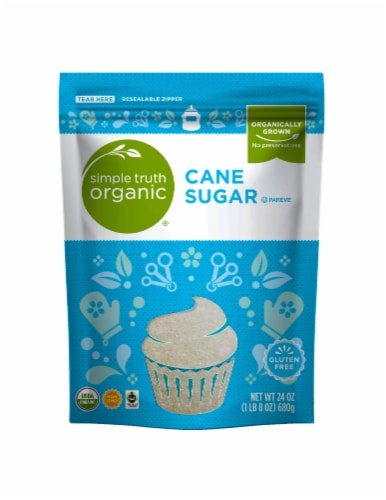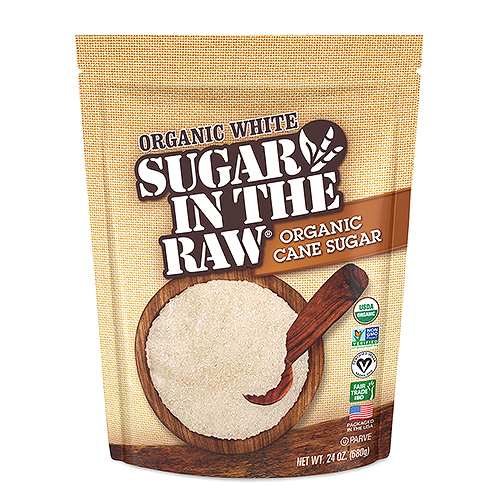A Detailed Summary of the Health and Economic Ramifications of Walking Cane Sugar Processing on Local Neighborhoods
Walking cane sugar handling plays a crucial function in forming the financial landscape of neighborhood areas, using employment possibility and promoting ancillary sectors. Nonetheless, the wellness implications associated with high sugar intake can not be overlooked, as they add to climbing rates of excessive weight and diabetes. This nuanced dynamic invites a crucial exam of exactly how areas can maximize economic gains while dealing with the pushing health difficulties they deal with. The expedition of academic efforts and sustainable practices may just hold the trick to integrating these conflicting passions. What techniques might communities apply to achieve this equilibrium?
Economic Advantages of Cane Sugar Processing
Walking cane sugar processing provides substantial economic advantages that prolong past the immediate agricultural industry. The growing and handling of sugarcane develop many job possibilities, from farming to manufacturing and circulation. This work generation not only sustains local economies but additionally fosters community development by giving stable revenue sources for households.
Furthermore, the sugar market stimulates secondary services, consisting of transport, tools supply, and product packaging services (Cane Sugar Processing). As these fields grow, they add to a more robust financial structure, enhancing general community strength. The export possibility of processed walking stick sugar better magnifies economic advantages, placing regions as affordable players in worldwide markets
Financial investment in contemporary handling centers can bring about enhanced performance and efficiency, thus lowering waste and enhancing source usage. This shift not only profits the regional economic climate yet additionally supports sustainability initiatives by minimizing environmental effects.
Furthermore, the earnings generated from cane sugar handling can be reinvested in neighborhood infrastructure, education and learning, and health care, advertising holistic community development. In general, the economic benefits of cane sugar handling are complex, supplying a foundation for enduring prosperity in farming areas.
Health And Wellness Risks Associated With Sugar Consumption
Too much sugar consumption positions significant health threats that call for major attention. High consumption of sugarcoated, particularly from processed drinks and foods, has actually been connected to many health and wellness problems. One of the most important worries is obesity, as sugary diets add to a boosted caloric consumption without giving essential nutrients. This unwanted can cause metabolic disorders, including type 2 diabetes mellitus, which has actually come to be significantly common in both adults and kids - Cane Sugar Processing.
In addition, high sugar usage is related to heart disease. Elevated blood glucose levels can lead to insulin resistance, a precursor to different heart-related problems. Additionally, sugar can have detrimental effects on dental health, leading to tooth cavities and gum tissue illness, as microorganisms in the mouth flourish on sugar, creating acids that deteriorate tooth enamel.
Additionally, arising study recommends a potential web link in between high sugar intake and psychological health conditions, such as clinical depression and anxiousness. As areas grapple with these health and wellness threats, it comes to be vital to advertise awareness and encourage healthier dietary options. Resolving sugar consumption is essential not only for specific wellness yet additionally for the total well-being of local communities, highlighting the need for detailed public wellness approaches.
Ecological Impacts of Sugar Manufacturing
Often overlooked in discussions concerning sugar's implications is the significant environmental impact of sugar manufacturing. The farming of sugarcane frequently necessitates comprehensive land usage, leading to logging, loss of biodiversity, and disturbance of neighborhood ecological communities. The conversion of forests and marshes right into sugar plantations can result in habitat damage, harmful various types and altering eco-friendly equilibrium.
In addition, sugar manufacturing is resource-intensive, consuming considerable quantities of water for irrigation. This can lead to deficiency of regional water sources, negatively impacting both agricultural techniques and community access to tidy water. In addition, making use of chemical fertilizers and pesticides in sugarcane farming can add to dirt degradation and water air pollution, as drainage from these chemicals goes into nearby rivers and lakes, influencing water life and human wellness.
The ecological impact expands to the handling phase, where power usage and waste generation more worsen ecological worries. Air pollution from burning sugarcane fields, along with greenhouse gas exhausts, add to climate modification. As such, the ecological effects of sugar production warrant significant consideration, advising stakeholders to embrace more sustainable methods to reduce these damaging impacts on neighborhood ecological communities and communities.
Job Development and Community Development
The environmental difficulties posed by sugar production are frequently counteracted by its capacity for financial advantages, particularly in job production and community advancement. The walking cane sugar sector works as a significant resource of work in numerous country locations, providing tasks across various skill degrees, from agricultural labor to processing and circulation roles. This work not just supports individual households yet likewise adds to the overall economic vitality of neighborhood neighborhoods.
In addition, the facility of sugar handling facilities promotes supplementary services, such as transport solutions, equipment supply, and maintenance providers. As these companies prosper, they create additional work and strengthen local economic situations. The earnings created from the sugar sector likewise leads to enhanced tax revenues, which can be reinvested into social work such as education, healthcare, and infrastructure advancement.
Additionally, the sugar industry frequently takes part in community advancement initiatives, such as sustaining neighborhood schools and wellness programs, consequently improving the high quality of life for locals. By fostering strong neighborhood connections and promoting financial growth, the cane sugar handling sector plays a vital role in uplifting regional populaces, making it an important part of lasting growth techniques in sugar-producing areas.
Balancing Health And Wellness and Economic Growth
In browsing the complexities of walking stick sugar handling, an important difficulty exists in balancing health and wellness considerations with financial development. The sugar industry dramatically adds to neighborhood economic climates by creating jobs, promoting associated industries, and increasing tax profits. Nevertheless, the wellness implications related site here to too much sugar intake can cause chronic conditions such as excessive weight, diabetic issues, and cardio concerns, which can worry public health and wellness systems and lessen workforce productivity.

Moreover, regulative frameworks can play a crucial role in directing market techniques in the direction of even more health-conscious and sustainable techniques. By fostering collaboration between federal government bodies, health companies, and the sugar sector, communities can navigate the dichotomy of wellness and economic growth, making sure that the advantages of walking cane sugar handling are equitably shared while focusing on public wellness.
Verdict
Finally, the processing of walking cane sugar offers both substantial financial benefits and noteworthy wellness dangers for neighborhood neighborhoods. While it fosters job production and boosts local growth, the involved health issues, especially pertaining to obesity and diabetic issues, demand a mindful harmonizing act. By promoting responsible consumption and investing in area education and learning and lasting techniques, it is feasible to optimize economic benefits while minimizing adverse wellness effects, thus making sure a healthier future for neighborhood populaces.
Additionally, sugar can have destructive impacts on dental health, resulting in cavities and periodontal condition, as microorganisms in the mouth flourish on sugar, producing acids that deteriorate tooth enamel.
Attending to sugar usage is vital not only for specific health and wellness however also for the total wellness of neighborhood areas, highlighting the demand for thorough public health techniques.
Often ignored in discussions concerning sugar's ramifications is the significant ecological influence of sugar production. The health and wellness implications connected with too much sugar consumption can lead to persistent diseases such as excessive weight, diabetic issues, and cardio issues, which can worry public health visit this site right here systems and reduce workforce performance.
